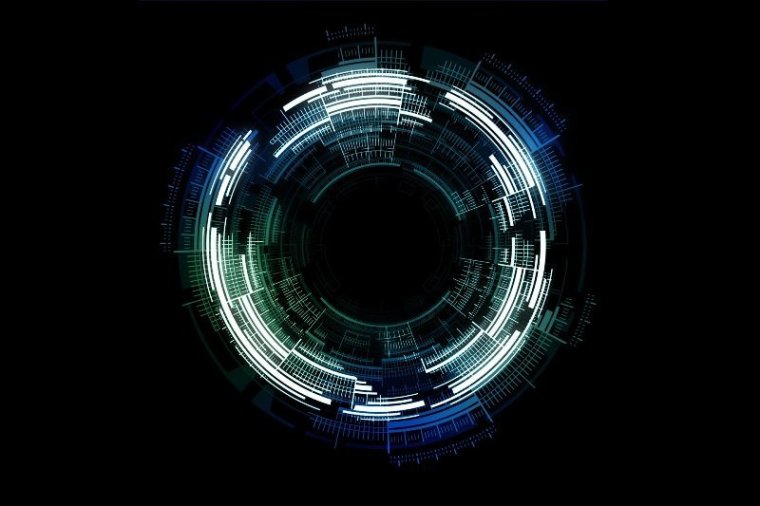
I recently watched Michael Moore's latest documentary release, Planet of the Humans.
I found it interesting as I have always had an interest in power technologies, with a firm understanding that we cannot power the world forever on current sources, namely coal, oil and gas – they will eventually run out and should be conserved.
Michael Moore's documentary concluded with a bitter tone of the only solution - to reduce the population.
I realised upon pondering this, it is contrary to what God has told us to do - which is according to Genesis verse 1, chapter 28, “God blessed them and said to them, "Be fruitful and increase in number; fill the earth and subdue it. Rule over the fish in the sea and the birds in the sky and over every living creature that moves on the ground."
As an electronics technician who has run their home on partial 12 volt solar for the last 16 years, I believe there are other alternatives to mass scale wind and solar, both at the local and national level.
The alternates
Years ago I saw a documentary about some uni students who recognised you cannot just give developing nations generators and other technologies that will require ongoing maintenance – who will pay for that maintenance in the form of parts and trained technicians?
So their solution was to create small hydro electric plants using parts from appliances, specifically the motors from large washing machines. Most AC motors used in appliances can be used to generate power when turned at the correct speed
These students made a simple adjustable water turbine to drive a washing machine motor, which created enough 24/7 power to run lighting and basics such as a small fridge, in a village. Just as example of cheap, reliable power generation.
There are several hydro electric plants in the world and they have been around as long as electricity itself. Provided there is a good flow of water, there will be a steady flow of generated power with easily adjusted power output. The downside is they need lots of water to operate.
There is a second alternate, which I would consider my favourite - a technology which happens to give the likes of New Zealand, an abundance of cheap power – thermo electric.
To explain simply, water is pumped under ground in pipes close to magma flows where water is converted into steam, and that steam resurfaces and is used to drive power generating turbines. Instead of burning coal, gas, or creating a nuclear reaction to generate heat, the steam is made by the heat of the earth itself.
It is best used in areas where magma flows are close to the surface, namely areas with volcanic activity as you do not have to drill deep to get to the heat, but I have always thought, this could be used almost anywhere – it just depends on how far you are prepared to dig, and once its dug, that's it. Clean, reliable, 24/7 power.
Battery Technology
A big part of the problem, as anyone who has a mild interest in renewable knows, is battery storage.
The main problem with batteries, specifically the lithium ion, is the toxic chemicals they use, the amount of mining required and the fact the mines will eventually run dry and of course their limited lifespan.
Energy can be stored in many forms and the safest is water storage. This is where water is pumped up hill into a dam installed with a hydro electric generator – a water turbine in the dam wall. The water from the dam will provide constant flow into the turbine generator day and night, with the likes of solar, wind and ocean wave generators which produce power intermittently or only during the day, pumping the water back into the dam when they can.
At home, I personally use the older battery technology of lead acid deep cycle batteries to store power from solar panels. They cannot catch fire by design as they contain a water based electrolyte – lithium ion relies on electronics to monitor charge and discharge rates and if this fails... it can catch on fire with catastrophic results in cars and homes.
Lead acid batteries are also recyclable, the lead plates of the battery and lead oxide which tends to accumulate in the bottom of the cells, as well as the electrolyte and plastic, can be recycled to be used in new batteries. Good quality deep cycle batteries last for a good 5 plus years if looked after correctly, and are cheaper than lithium ion.
For storing energy at large, to power towns and cities, water storage would be the safest option. For mass power generation? Thermal electric.
One more link...
There is one more piece to the pie, and that is if we want to go totally renewable in the forms I have discussed, we need to reduce our power use. Generally speaking, industry and manufacturing uses the most and poses a bigger challenge whereas I consider the average home to easily be self-sufficiently powered by electricity.
Michael Moore's conclusion? Reduce the worlds population. Kind of contradictory to Gods word, I belie we have the talent and ability to look after the planet we have been given and have sufficient energy supplies to power our needs.
We can live with less but too many stand to loose too much in order to change, so while I know an electrical utopia is possible even with current technologies, the fallen nature will prevent it from ever coming into fruition, at least on this earth.
Mathew chapter 5, verse 5 “Blessed are the meek, for they will inherit the earth.”

Michael Dahlenburg is an electronics technician. He is non-denominational and has previously been involved in church plants and assisting those in ministry. His interests include; enjoying family, home DIY, gardening, most things tech-related and driving his wife crazy with a constant stream of inventions! He lives with his wife Michelle and three children in God’s own land of Southern Adelaide, Australia.Michael Dahlenburg’s previous articles may be viewed at http://www.pressserviceinternational.org/michael-dahlenburg.html